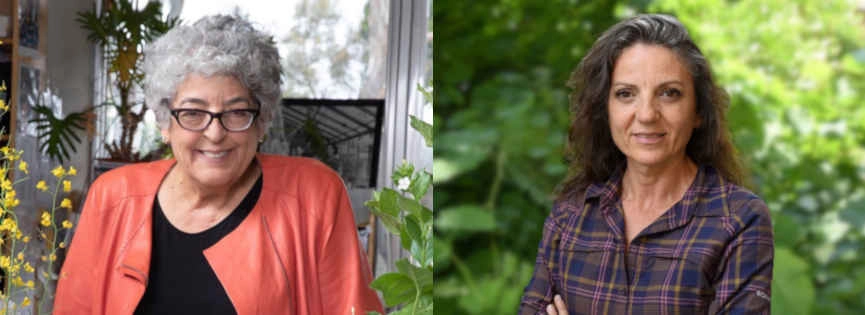Main content
Joanne Chory and Sandra Myrna Díaz 2019 Princess of Asturias Award for Technical & Scientific Research

Joanne Chory (Methuen, USA, 1955 - La Jolla, USA, 2024) graduated with a degree in Biology from Oberlin College (Ohio) and obtained her PhD in Microbiology from the University of Illinois at Urbana-Champaign in 1984. She was a postdoctoral fellow at Harvard and joined the Salk Institute in 1988, where she has occupied various posts, including that of head of research and director of the Plant Molecular and Cellular Biology Laboratory. She has been a researcher at the Howard Hughes Medical Institute since 1997 and an associate professor at the University of California San Diego since 1999. Her research has focused on the study of regulatory mechanisms in plants, from the molecular to the cellular level, as well as plant reactions to environmental conditions of stress. To conduct her research, she has used Arabidopsis thaliana as a model organism, revealing important aspects of the genes involved in functions such as sensitivity to light, the hormones that regulate plant growth and the response to hydric stress. Her contributions regarding the role of phytochrome, a vegetable protein sensitive to red and infrared light, and the coregulation of genes involved in photosynthesis are highly acclaimed.
She also studies the development of plants capable of absorbing much more carbon dioxide from the air than normal plants and leads the Salk Institute’s Harnessing Plant Initiative. Employing the most innovative genetic editing techniques, such as CRISPR, this research project combats global warming –and hence climate change– by optimizing the natural capacity of plants to capture and store carbon dioxide and to adapt to different climatic conditions.
Her work has been distinguished with the L’Oreal-UNESCO Award for Women in Science, the Breakthrough Prize in Life Sciences and the Gruber Prize in Genetics, among others. She is an elected Foreign Member of The Royal Society (2011 Prince of Asturias Award for Communication and Humanities), as well as a member of the American Association for the Advancement of Science (AAAS) and the French Academy of Sciences, among other institutions. According to Google Scholar, her publications have been cited more than 60 000 times, with an h-index of 124.
Sandra Myrna Díaz (Bell Ville, Argentina, 27th October 1961) graduated with a degree in Biology from the National University of Córdoba (Argentina) in 1984, obtaining her PhD from the same university in 1989. Between 1985 and 1991, she was a research fellow at the Centre for Ecology and Renewable Natural Resources at the aforementioned university and subsequently joined the University of Sheffield (UK) as a postdoctoral research associate. She returned to the University of Córdoba in 1993, where, among other posts, she is Professor of Community and Ecosystem Ecology and a senior researcher at the Multidisciplinary Institute of Plant Biology (IMBIV-CONICET). She has also participated in reports and activities carried out by both the Intergovernmental Panel on Climate Change and the International Convention on Biological Diversity.
Specializing in botany and considered a reference figure in the field of ecology, she has participated in the development of a methodological tool to quantify the effects and benefits of plant biodiversity and the plant ecology of ecosystems and their exploitation for fuel, materials, medicines, dyes, food, water protection and other contributions, as well as the role of biodiversity in counteracting global change, for example, through atmospheric carbon sequestration.
She is an elected member of the United States National Academy of Sciences and the French Academy of Sciences, as well as an elected Foreign Member of The Royal Society (2011 Prince of Asturias Award for Communication and Humanities), among other institutions. She has received numerous awards, most notably the Platinum Konex Prizes in Biology and Ecology, the Zayed International Prize for the Environment, the Bernardo Houssay Award and the Ramon Margalef Prize in Ecology. According to Google Scholar, her publications have been cited more than 40 000 times, with an h-index of 81.
End of main content
